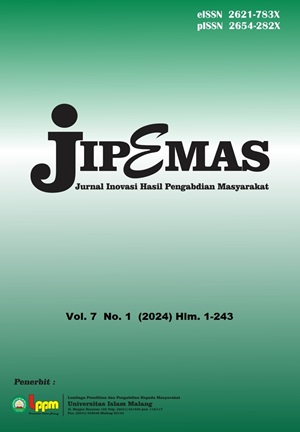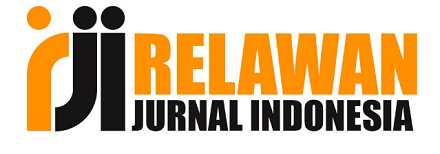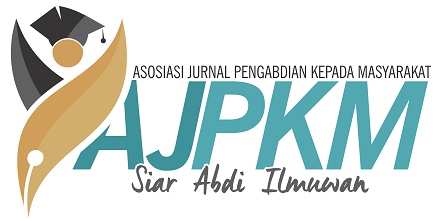Strategi pengembangan karir melalui pelatihan soft skill
DOI:
https://doi.org/10.33474/jipemas.v7i1.21139Keywords:
karir, personal branding, soft skillAbstract
Soft skill memainkan peran penting dalam karir dan interaksi sosial di masyarakat. Data tracer yang diperoleh melalui (Universitas Negeri Malang, 2021) memaparkan bahwa, 58,42% lulusan program studi pendidikan kepelatihan olahraga (PKO) menunggu untuk mendapatkan pekerjaan rata-rata 3 bulan. Hal tersebut sebagai landasan pelatihan soft skill guna bekal alumni dalam bekerja dan kehidupan sehari-hari untuk meniti karir. Dengan diadakannya pelatihan personal branding for career development akan menambah wawasan dan keterampilan alumni, sehingga diharapkan dapat memberikan bekal para pelatih khususnya alumni PKO agar lebih siap bersaing didunia kerja. Kegiatan pengabdian ini menggunakan metode Participatory Action Research (PAR). Data primer didapatkan melalui pre-test kepada alumni PKO sebelum pelatihan dan setelah pelatihan diberikan post-test menggunakan platform Quizizz sebagai alat bantu. Adapun data sekunder yang diperoleh melalui pengamatan secara langsung selama kegiatan. Hasil dari kegiatan pengabdian ini yaitu tercapainya keberhasilan target alumni PKO yaitu 30 peserta, ketercapaian tujuan pelatihan yaitu memberikan peningkatan pengetahuan dan pemahaman alumni sebesar 25,44% dari yang awalnya (pre-test) 45.16% menjadi 70,6% (post-test), ketercapaian target materi yang telah direncanakan yaitu 12 materi terkait soft skill dalam olahraga, pemahaman alumni dalam menerima materi yang disampaikan dibuktikan melalui hasil post-test peserta. Hal ini menunjukkan adanya peningkatan pengetahuan pada alumni setelah dilaksanakannya pelatihan hybrid soft skill dan diberikan produk berupa video materi soft skill. Video tersebut dapat dipelajari kembali sebagai bekali diri untuk bersaing di dunia kerja.
References
Arikunto, S., & Jabar, C. S. A. (2010). Evaluasi Program Pendidikan. Bumi Aksara.
Ayub, S. H., Manaf, N. A., & Hamzah, M. R. (2014). Leadership: Communicating Strategically in the 21st Century. Procedia - Social and Behavioral Sciences, 155(November), 502–506. https://doi.org/10.1016/j.sbspro.2014.10.330
Brooks, A. K., & Anumudu, C. (2016). Identity Development in Personal Branding Instruction: Social Narratives and Online Brand Management in a Global Economy. Adult Learning, 27(1), 23–29. https://doi.org/10.1177/1045159515616968
Chuang, S.-F. (2013). Essential Skills for Leadership Effectiveness in Diverse Workplace Development. Online Journal for Workforce Education and Development, 6(1), 1–24. https://opensiuc.lib.siu.edu/ojwed/vol6/iss1/5
Clark, G., Marsden, R., Whyatt, J. D., Thompson, L., & Walker, M. (2015). ‘It’s everything else you do…’: Alumni views on extracurricular activities and employability. Active Learning in Higher Education, 16(2), 133–147. https://doi.org/10.1177/1469787415574050
Davis, B. D., & Muir, C. (2004). Learning Soft Skills at Work. Business Communication Quarterly, 67(1), 95–101. https://doi.org/10.1177/1080569903261973
Eccles, J. S. (1999). The Development of Children Ages 6 to 14. Future of Children, 9(2), 30–44. https://doi.org/10.2307/1602703
Escamilla-Fajardo, P., Núñez-Pomar, J. M., & Gómez-Tafalla, A. M. (2020). Exploring Environmental and Entrepreneurial Antecedents of Social Performance in Spanish Sports Clubs: A symmetric and Asymmetric Approach. Sustainability (Switzerland), 12(10). https://doi.org/10.3390/su12104234
Fapohunda, T. M. (2013). Towards Effective Team Building in the Workplace. International Journal Of Education and Research, 1(4), 1–12. http://www.ijsac.net/node/622
Guidotti, F., Demarie, S., Ciaccioni, S., & Capranica, L. (2023). Sports Management Knowledge, Competencies, and Skills: Focus Groups and Women Sports Managers’ Perceptions. Sustainability, 15(13), 10335. https://doi.org/10.3390/su151310335
Hearn, A. (2008). “Meat, Mask, Burden”: Probing The Contours of The Branded “Self.” Journal of Consumer Culture, 8(2), 197–217. https://doi.org/10.1177/1469540508090086
Indarti, L., Saud, U. S., Yuniarsih, T., & Nurdin, D. (2023). The Online Training on English for Teaching Science for Primary and Secondary School Teachers. Dinamisia: Jurnal Pengabdian Kepada Masyarakat, 7(4), 1065–1072. https://doi.org/https://doi.org/10.31849/dinamisia.v7i4.15529
Jeffrey, L., Milne, J., Suddaby, G., & Higgins, A. (2014). Blended Learning: How Teachers Balance the Blend of Online and Classroom Components. Journal of Information Technology Education: Research, 13(January), 121–140. https://doi.org/10.28945/1968
Johnson, K. M. (2017). The Importance of Personal Branding in Social Media: Educating Students to Create and Manage their Personal Brand. International Journal of Education and Social Science , 4(1), 21–27.
Khedher, M. (2015). An Inspiring Resource for Developing Personal Branding Phenomena. The Marketing Review, 15(1), 117–131. https://doi.org/10.1362/146934715x14267608178802
Lair, D. J., Sullivan, K., & Cheney, G. (2005). Marketization and The Recasting of The Professional Self: The Rhetoric and Ethics of Personal Branding. Management Communication Quarterly, 18(3), 307–343. https://doi.org/10.1177/0893318904270744
MacDonald, C. (2012). Understanding PAR: A Qualitative Research Methodology. Canadian Journal of Action Research, 13(2), 34–50. https://doi.org/10.33524/cjar.v13i2.37
Mitchell, G. W., Skinner, L. B., & White, B. J. (2010). Essential Soft Skills for Success in the Twenty-First Century Workforce as Perceived by Business Educators. Delta Pi Epsilon Journal, 52(1), 43–53. https://etd.auburn.edu/handle/10415/1441
Ngang, T. K., Yie, C. S., & Shahid, S. A. M. (2015). Quality Teaching: Relationship to Soft Skills Acquisition. Procedia - Social and Behavioral Sciences, 191(1981), 1934–1937. https://doi.org/10.1016/j.sbspro.2015.04.649
Pachauri, D., & Yadav, A. (2013). Importance of Soft Skills in Teacher Education Programme. IJERT International Journal of Educational Research, 41(5), 22–25.
Peterson, T., & Schenker, K. (2018). Social Entrepreneurship in a Sport Policy Context. Sport in Society, 21(3), 452–467. https://doi.org/10.1080/17430437.2017.1346618
Rangarajan, D., Gelb, B. D., & Vandaveer, A. (2017). Strategic Personal Branding—and How it Pays Off. Business Horizons, 60(5), 657–666. https://doi.org/10.1016/j.bushor.2017.05.009
Ratten, V., & Jones, P. (2020). New Challenges in Sport Entrepreneurship for value creation. International Entrepreneurship and Management Journal, 16(3), 961–980. https://doi.org/10.1007/s11365-020-00664-z
Remedios, R. (2014). The Role of Soft Skills in Employability. Delta Pi Epsilon Journal, 4(1), 316–334.
Robles, M. M. (2012). Executive Perceptions of the Top 10 Soft Skills Needed in Today’s Workplace. Business Communication Quarterly, 75(4), 453–465. https://doi.org/10.1177/1080569912460400
Smith, A. C. T., & Stewart, B. (2010). The Special Features of Sport: A Critical Revisit. Sport Management Review, 13(1), 1–13. https://doi.org/10.1016/j.smr.2009.07.002
Sparrow, S. M. (2011). Teaching and Assessing Soft Skills. Journal of Legal Education, 67(2), 553–575. https://www.jstor.org/stable/26890952
Sudjiono, A. (2003). Pengantar Statistik Pendidikan. Raja Grafindo.
Tiber, K. (2016). The Brand Mapping Strategy: Design, Build and Accelerate Your Brand. Entrepreneur Press.
Wats, M., & Wats, R. K. (2009). Developing Soft skills in Students. The International Journal of Learning Annual Review, 15(22), 1–10. https://doi.org/10.18848/1447-9494/CGP/v15i12/46032
World Economic Forum. (2016). New Vision for Education : Fostering Social and Emotional Learning through Technology. Prepared in collaboration with The Boston Consulting Group.
Downloads
Published
How to Cite
Issue
Section
License
Copyright (c) 2024 Prisca Widiawati, Moch. Yunus, Yulingga Nanda Hanief, Ulma Erdilanita, Dinda Arisetya Purwadi

This work is licensed under a Creative Commons Attribution-ShareAlike 4.0 International License.
.










